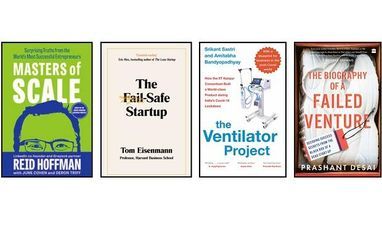Earlier this year, Warren Buffett’s Berkshire Hathaway invested $500 million in a Brazilian fintech start-up called Nubank. This development is noteworthy because Warren Buffett seldom invests in start-ups, preferring to stick to his “circle of competence”. Back in 2018, his company had surprised the business community when it had placed a rare bet in start-ups by investing $300 million in India’s Paytm. Paytm was listed last month and Nubank this month. As several other start-ups queue up for IPOs, and record amounts of dollars flow into this alternative investment space, one observes that the start-up activity has truly turned mainstream. Entrepreneurship has become a popular option for wealth creation.
Heroes and hustlers, celebrities and nerds, all have been drawn to this century’s gold rush and the excitement is palpable. Whether the start-ups meet with unicorn endings or simply get slammed against the hard wall of brutal commerce, one thing is certain — these businesses have brought in their pickaxes to disrupt the status quo. As a consequence, the tech and innovation landscape is changing rapidly. A new cast of characters is taking centre-stage and neologisms and portmanteau phrases such as decacorns, aquihires, and blitzscaling have now seeped into current business lingo.
Looking back at 2021, we take note of the top start-up-related books published this year that shed new light on this space. They range from memoirs to self-help manuals and serve as readable guides not just for entrepreneurs but for anyone with an interest in this domain.
Masters of Scale
This book is written by Reid Hoffman, along with June Cohen and Deron Triff. Hoffman, as you may be aware, is the founder of LinkedIn and an investor at Greylock Partners. This book is based on the popular podcast that he hosts. He has previously authored books such as The Alliance, The Start-up of You and Blitzscaling.
In his current book, he has drawn on his conversations with successful business leaders and distilled key insights into ten themes — “Do Things That Don’t Scale”, “Learn to Unlearn”, “Watch What They Do, Not What They Say” feature among these themes. Leveraging entertaining anecdotes and insightful takeaways (served up as Reid’s theories and Reid’s analysis), this book offers sound counsel to the reader who is seeking to take his start-up “from zero to a gazillion”.
The Fail-Safe Startup
With this book, Harvard Business School professor Tom Eisenmann has attempted to answer questions such as why do start-ups fail and what aspiring entrepreneurs can learn from these failures. Drawing on experience, interviews, surveys and case studies, the author casts aside conventional wisdom and uncovers various factors contributing to start-up failure.
Eisenmann argues that blaming the horse (opportunity) or jockey (founder) for a venture’s failure is a simplistic approach. Utilising profiles of multiple unsuccessful start-ups such as Quincy, Triangulate, Fab, and Better Place, the author identifies six failure patterns that typically sink ventures.
The Ventilator Project
The Ventilator Project was formed in response to Prime Minister Modi’s call to develop indigenous solutions to battle against Covid-19. The IIT-Kanpur team including a start-up called Nocca Robotics took on the ambitious task of building a high-quality ICU grade ventilator in a short span of time and delivered on its objective.
Project leads Srikant Sastri and Amitabha Bandyopadhyay have documented the team’s “race against time”, and the outcome is an inspiring story that showcases human grit and innovative spirit in the face of adversity.
The Biography of a Failed Venture
There is much to be gained from reading this original memoir written by Prashant Desai. Rising from humble beginnings, the author attempts to convert Rs 20 crore into Rs 2,000 crore in 10 years by building a truly Indian sports brand. But the effort goes belly-up. In the end, the venture manages to suck in Rs 30 crore of investor funds, and decimates much of Mr. Desai’s personal wealth. What follows is an in-depth examination of this entrepreneurial failure. The honest and crisp narrative results in a captivating read.
Matthew Brennan follows the rapid rise of ByteDance from being just another tech company to the behemoth that it has become today. In particular, he tries to demystify the success of TikTok. He identifies and explores the two internet trends that have fuelled TikTok’s success: (1) the popularity of the short video format; and (2) the use of AI in recommendation engines. Several anecdotes about ByteDance, TikTok and the founders, while widely known in China, have eluded the English-speaking world so far. The author’s key motivation for writing the book is “to shine a light on the extensive knowledge gap on ByteDance between China and the rest of the world”.
So, dear reader and potential start-up entrepreneurs, fill up your tote bag with these parcels of knowledge to help you to survive and thrive in this age of über-competitive business. As Reid Hoffman reminds us, “We’re all constantly learning. Or should be. We’re in permanent beta.”













)
